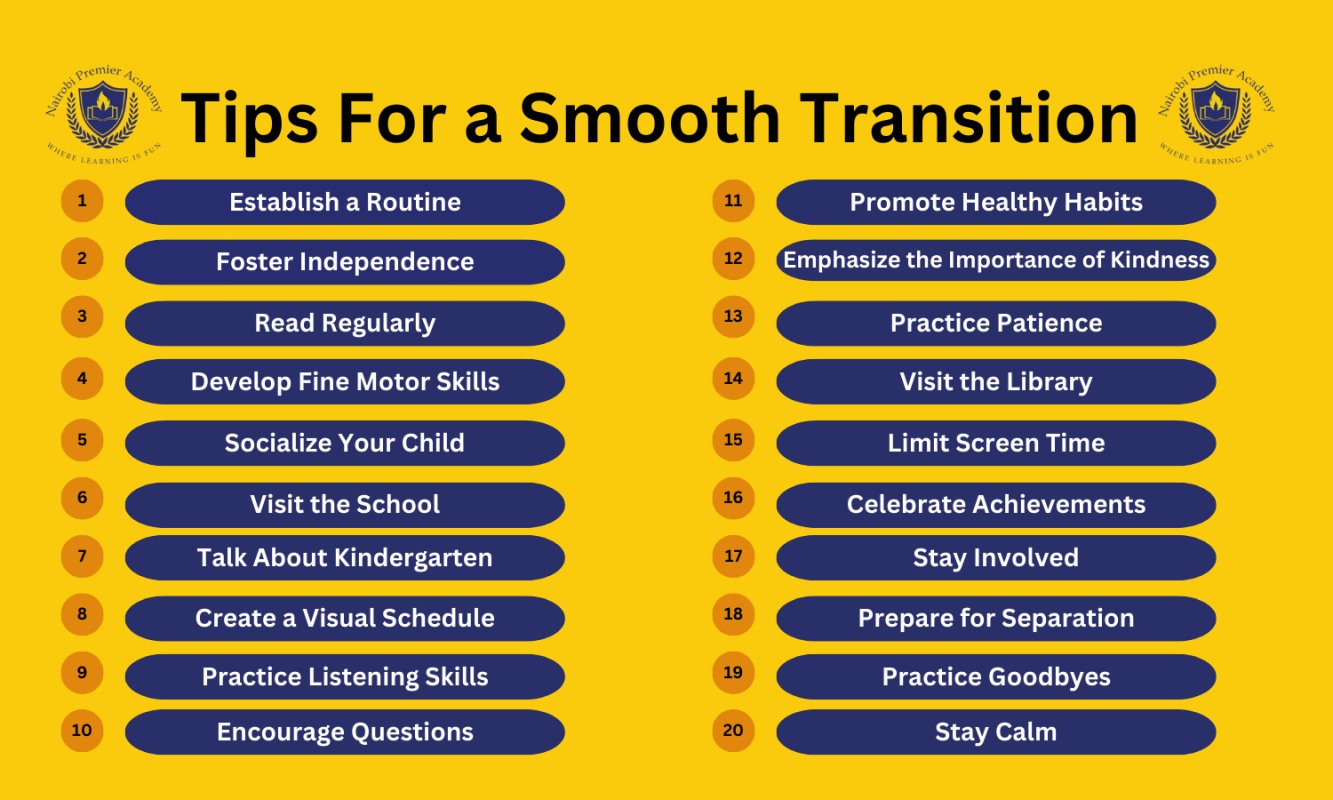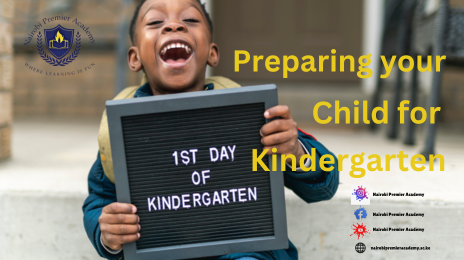The first day of kindergarten is a monumental milestone in both a child’s and a parent’s life. It marks the beginning of formal education and sets the stage for a lifelong journey of learning. However, the transition to kindergarten can be both exciting and daunting, as it represents a significant change for your child. To ensure a smooth transition into this new phase of their life, it’s essential to prepare your child adequately. In this guide, we will explore various strategies and tips to help your child thrive in kindergarten.
1. Establish a Routine
Kindergarten introduces children to a structured environment with schedules and routines. To prepare your child, start implementing a daily routine at home. This routine should include set times for waking up, meals, playtime, and bedtime. This consistency will help your child adapt more easily to the structured environment of kindergarten.
2. Foster Independence
Encourage your child to become more independent. Teach them basic self-care skills like dressing themselves, using the restroom, and washing their hands. Independence boosts a child’s confidence and readiness for kindergarten.
3. Read Regularly
Reading is one of the most critical skills for a kindergartener. Make reading a daily habit at home. Read books together, ask questions, and encourage your child to talk about the story. This not only builds their vocabulary but also nurtures a love for learning.
4. Develop Fine Motor Skills
Fine motor skills are essential for tasks like writing, cutting, and using scissors. Encourage your child to practice coloring, drawing, and cutting with safety scissors. These activities help strengthen their hand muscles and improve coordination.
5. Socialize Your Child
Kindergarten is not just about academics; it’s also a place for social development. Arrange playdates with other children to help your child learn how to share, take turns, and communicate effectively. These social skills are crucial for a smooth kindergarten experience.
6. Visit the School
Familiarize your child with the school environment by visiting the school beforehand. If possible, meet the teacher and take a tour of the classroom. This can alleviate some of the anxiety associated with starting kindergarten.
7. Talk About Kindergarten
Engage your child in conversations about kindergarten. Ask them how they feel about starting school and address any concerns they may have. Keep the discussions positive and highlight the exciting aspects of kindergarten.
8. Create a Visual Schedule
A visual schedule can help your child understand the daily routine at school. Use pictures or drawings to represent different activities, such as circle time, snack time, and playtime. Review the schedule with your child regularly to build their familiarity with it.
9. Practice Listening Skills
Kindergarten involves a lot of listening, following directions, and paying attention. Help your child develop these skills by playing games that require listening and following instructions. This can include Simon says, story time, or simple board games.
10. Encourage Questions
Foster your child’s curiosity by encouraging them to ask questions. Answer their inquiries and explore topics together. This habit of seeking knowledge will serve them well in kindergarten and beyond.

11. Promote Healthy Habits
Ensure that your child gets enough sleep and eats a balanced diet. A well-rested and nourished child will be better equipped to handle the challenges of kindergarten.
12. Emphasize the Importance of Kindness
Teach your child about the value of kindness and empathy. Remind them to be friendly and considerate towards their classmates. These qualities will help your child make friends and create a positive classroom atmosphere.
13. Practice Patience
Kindergarten can be overwhelming, and it’s natural for children to experience moments of frustration. Teach your child how to manage their emotions and practice patience. This will be a valuable skill throughout their educational journey.
14. Visit the Library
Take your child to the local library regularly. This not only exposes them to a wide variety of books but also instills a love for reading and learning. Many libraries also offer storytelling sessions for young children.
15. Limit Screen Time
Reduce screen time to ensure your child has plenty of time for other activities like playing, reading, and exploring. Excessive screen time can hinder a child’s development and ability to focus.
16. Celebrate Achievements
Celebrate your child’s milestones and achievements, no matter how small they may seem. This positive reinforcement boosts their self-esteem and motivates them to excel in kindergarten.
17. Stay Involved
Stay involved in your child’s education by attending parent-teacher meetings, volunteering at school events, and keeping an open line of communication with the teacher. Being an active participant in your child’s education shows them that you value their learning.
18. Prepare for Separation
For many children, kindergarten is the first time they’ll be away from their parents for an extended period. Prepare your child for this separation by arranging shorter playdates or activities where they spend time away from you. Gradually increase the duration as their comfort level grows.
19. Practice Goodbyes
Practice saying goodbye in a positive and reassuring way. Let your child know that you’ll be back to pick them up after school. This helps ease separation anxiety.
20. Stay Calm
Lastly, and perhaps most importantly, stay calm and positive throughout this transition. Children pick up on their parents’ emotions, so if you appear anxious or upset, your child may become more nervous about starting kindergarten.
In conclusion, preparing your child for kindergarten is a significant undertaking that involves not only academic readiness but also emotional and social preparation. By following these tips and tailoring them to your child’s unique needs, you can ensure a smooth transition into the world of kindergarten. Remember that every child is different, so be patient and supportive as your child embarks on this exciting journey of learning and growth. With your guidance and love, your child will be well-prepared to thrive in kindergarten and beyond.


